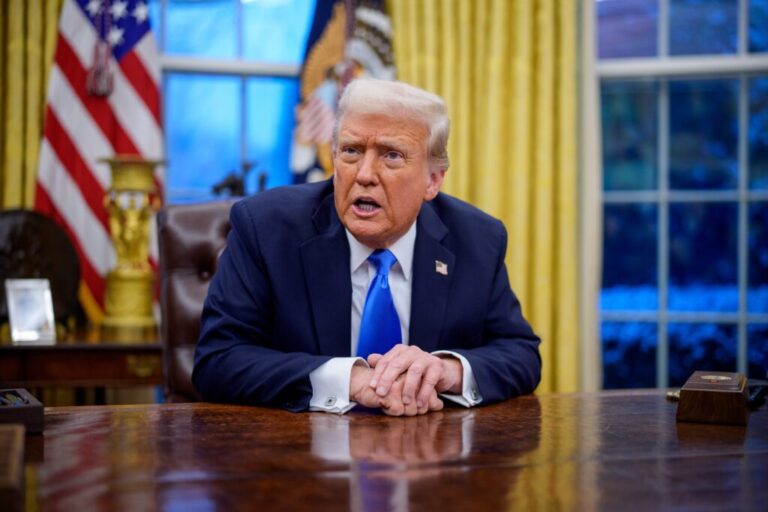Trump Halts Tariffs for 90 Days, Intensifies Action Against China
In a surprising shift from recent policy, President Donald Trump announced on Wednesday a 90-day suspension of his proposed tariffs affecting a range of countries willing to engage in trade negotiations. This decision came just days after a previous declaration of sweeping “liberation day” tariffs that had shaken financial markets.
Market Reactions and Details of Tariff Adjustments
Following the announcement, stock markets experienced significant gains, with the Nasdaq marking its highest increase in five years, as investors reacted positively to the potential for re-engagement with trading partners. The announcement indicated that over 75 countries had appealed for negotiations, which led Trump to reduce their tariff rates to a universal 10%. However, this pause does not apply to China, where new tariffs will increase to 125% on imports, effective immediately.
“At some point, hopefully in the near future, China will realize that the days of ripping off the U.S.A. are no longer sustainable or acceptable,” Trump stated via his social media platform shortly after the announcement.
Ongoing Tariffs and International Relations
Despite the temporary pause for negotiations, several tariff measures initiated in March will remain active. This includes a 25% tax on imports of steel, aluminum, and vehicles, which have already prompted the European Union to approve retaliatory tariffs. Additionally, Canada and Mexico will continue to face existing tariffs, though Trump assured that they would not incur the new 10% tax layered on top of their already established levels.
Trump’s administration remains firm on maintaining the 25% import tax on countries purchasing oil from Venezuela. Treasury Secretary Scott Bessent defended the previous tariffs as part of a successful negotiation strategy and indicated that meetings with countries like Japan and South Korea are anticipated soon.
Political Pressure and Public Sentiment
The abrupt change in tariff policy appears to coincide with mounting pressures from lawmakers who expressed concern over the declining stock market and its impact on American workers. Several Republican and Democratic lawmakers have questioned the validity and economic ramifications of operating under such tariffs, particularly how they could jeopardize small businesses and retirement savings.
In a public address following his announcement, Trump recognized the “queasy” sentiments among the populace regarding the market fluctuations. He emphasized the need for flexibility in policy-making and noted that recent responses by various nations to potential tariffs have greatly influenced his decision to reconsider them.
Critics have also raised questions about potential insider trading given the rise and fall of stock prices corresponding with Trump’s tariff decisions. Democratic Senator Adam Schiff specifically called for clarity on whether anyone in the administration profited from legislative actions that influenced the market.
Conclusion
President Trump’s abrupt decision to pause tariff implementation for a subset of countries marks a critical moment in his trade policy, revealing the complexities of international trade negotiations amidst significant domestic economic challenges. As the administration moves forward, the focus will undoubtedly remain on how this pause will affect relations with global trading partners and the ongoing situation with China.


